Pregnant Women And Mothers Threatened By Afghan Violence
Married to a much older man in Afghanistan, Wati -- who thinks she is around 30 years old -- is pregnant for a fifth time in four years, including two miscarriages.
She has travelled by car to a government-run maternity clinic in a poor and rural village in southern Kandahar province, the birthplace of the Taliban.
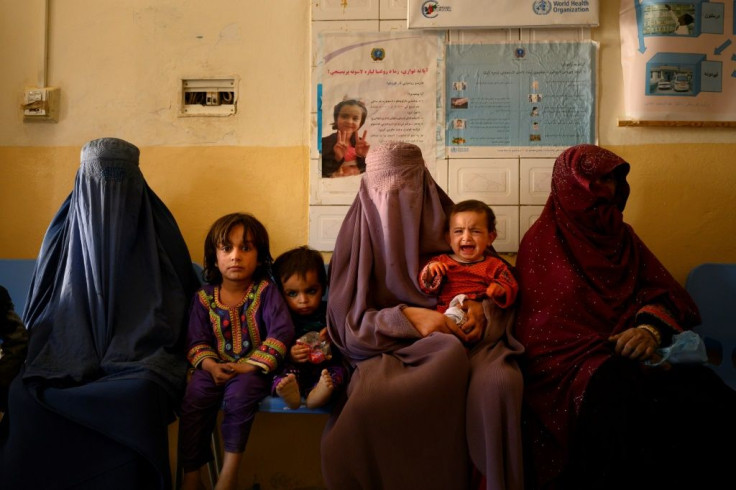
"I am afraid I will lose the baby again," she tells AFP, a small bump showing on her frail frame.
Decades of conflict and poverty have long made it a struggle for women to access maternal healthcare in deeply patriarchal Afghanistan.
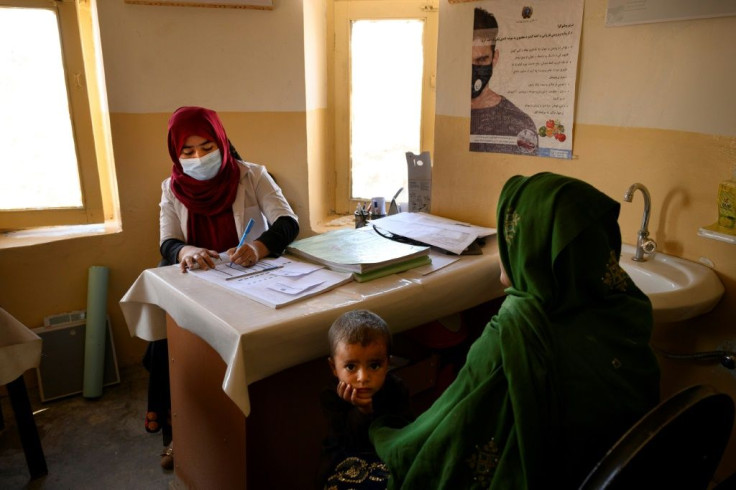
With the withdrawal of US-led foreign forces and escalating violence, there are signs it could become even more difficult, with thousands of women displaced, roads increasingly too dangerous to travel and international aid drying up.
At the clinic in Kandahar, women in burqas arrive accompanied by male relatives, who are barred from entering and wait outside on the grass.
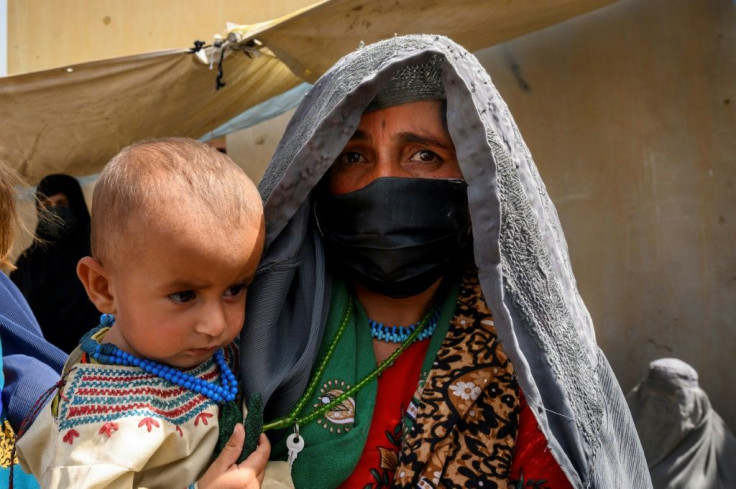
"I only have permission to leave the house to go to the doctor," says Wati, clutching her medical notes in a plastic bag.
With five children, fellow mother Khorma has also had two miscarriages and is worried after discovering she is pregnant again.
"I worked too hard at home," she said during a visit to the clinic in Dand district, before the Taliban launched its latest sweeping offensive across the country.
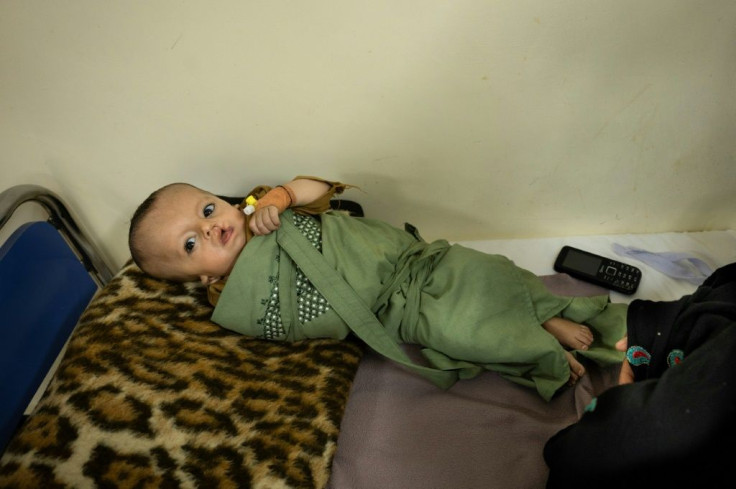
Forty-one percent of Afghan women give birth at home and 60 percent have no postnatal care, according to a 2018 study by the KIT Royal Tropical Institute, based in the Netherlands.
The statistics are worse in the south, the region worst affected by decades of conflict, with clinics often too far away or requiring expensive transport through dangerous areas.
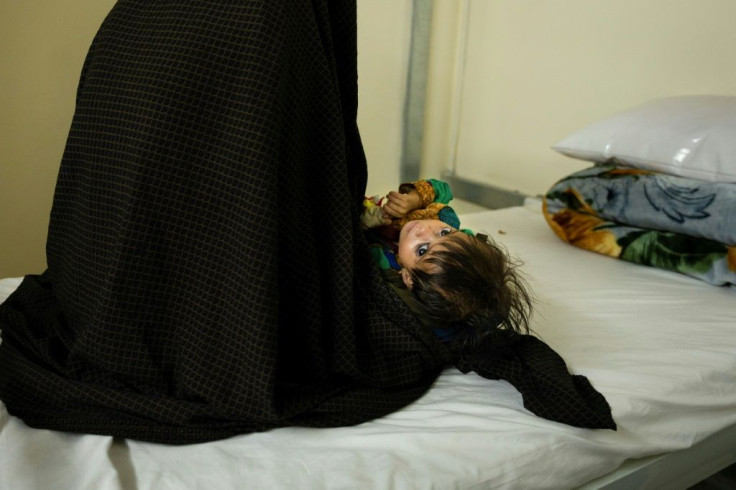
"Some families don't care about pregnancies: the women give birth at home, start bleeding too much and go into shock," says Husna, a midwife.
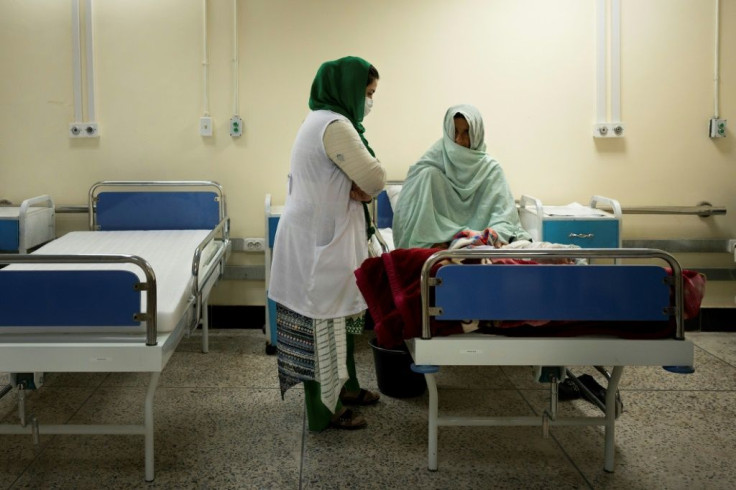
The international community has poured billions of dollars in aid into Afghanistan during the past two decades of US-led military involvement, with the average infant mortality rate halved between 2003 and 2018, according to the World Bank.
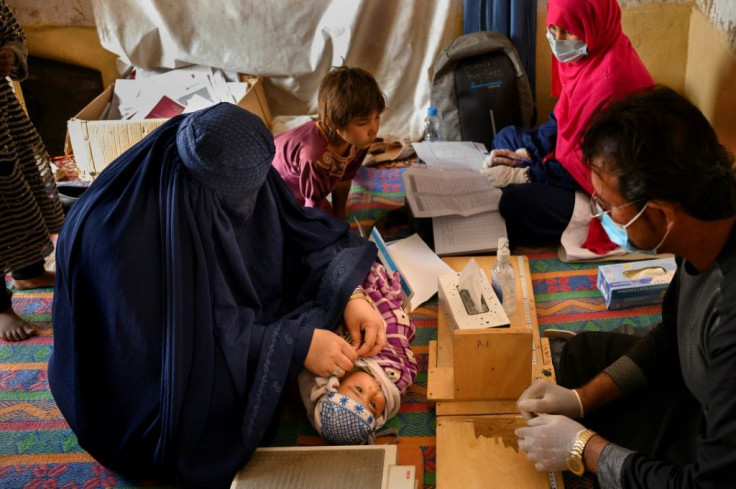
Although healthcare has improved -- mainly in cities -- insecurity and poverty still have a devastating impact.
The United Nations children's agency UNICEF recorded that 7,700 women died in childbirth in 2017 -- twice the number of civilians killed in political violence that year.
The drawdown of US and NATO troops has accompanied a slashing of foreign aid, which Human Rights Watch says has already delivered a "life-threatening" impact on women and girls.
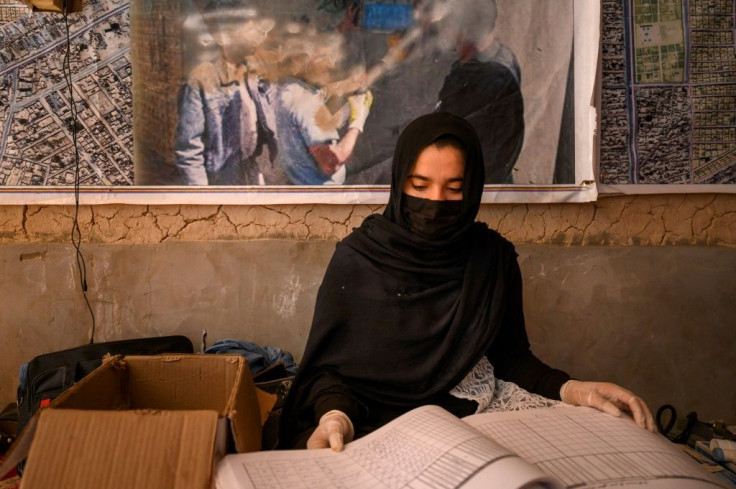
In the dusty village of Qasem Pul, midwife Najia goes house-to-house, monitoring women through their pregnancies.
"Some families don't let women go to clinics. Sometimes men don't even let me in," she says.

Najia meets with Kela in the courtyard of her home, a little boy resting in her lap, his face screwed in pain.
"I want to start family planning," she says, after realising she was five months pregnant with a sixth child.
"I have economic problems and I cannot take care of all my children. We don't even have money for soap."
Crucially, she has the approval of her husband.
In a mobile clinic set up in a village on the outskirts of Lashkar Gah in southern Helmand province, midwife Qandi Gul is examining women and children -- many displaced by the conflict.
"Most of them are sick. The families don't take good care of women," she says.
Patients waited with their sick children in the courtyard -- all with agonising stories of miscarriages, or neighbours who died giving birth.
"My child died in Marja because I did not have access to a clinic or a midwife," says 20-year-old Farzana, who fled her Taliban-held hometown. "Many children died."
The situation in Helmand province "is really critical", Gul later told AFP over the phone, as the Taliban press on with a sweeping offensive.
"All the people are being affected."
Desperate mothers are still prepared to take monumental risks to access healthcare.
Shazia, married at 10 and now a mother of three at 18, told AFP that while living under Taliban rule she had to walk for hours to reach a clinic -- and was sometimes blocked by the militants.
"It was very dangerous. Three women died on the way," says Shazia, now resettled in government-controlled Lashkar Gah.
At a hospital in the city for critically malnourished children, run by French humanitarian group Action Against Hunger, Rozia had arrived from a Taliban-held village.
Her seven-month-old boy Bilal, born prematurely with a cleft lip, suffers from pneumonia and acute malnutrition.
"I was very scared of the fighting," she told AFP, but braved the journey after the health of her son deteriorated.
She has already lost one child, also born prematurely, after the hospital where she delivered asked her to leave because of a lack of resources.
Her child died three days later.
"No one could help me," she says.
© Copyright AFP 2024. All rights reserved.





















